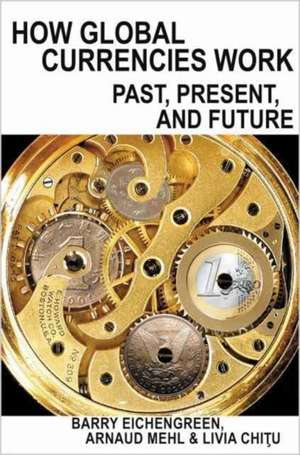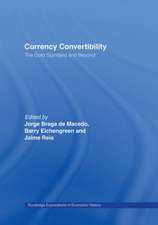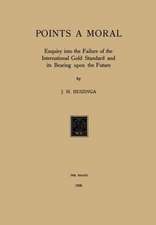How Global Currencies Work – Past, Present, and Future
Autor Barry Eichengreen, Arnaud Mehl, Livia Chituen Limba Engleză Hardback – 12 oct 2017
"This book will come to be known as the one that challenged the old, winner-takes-all view of international currency competition and established the new view. Barry Eichengreen and his coauthors present thorough and telling evidence that the historical reality is that multiple currencies play consequential roles in international trade and finance--and that lock-in effects and persistence are not as strong as traditionally assumed. In short, this is a must-read for all economists interested in international macroeconomics and finance."--Richard Baldwin, Graduate Institute of International and Development Studies, Geneva
"Barry Eichengreen, our pre-eminent international monetary historian, and his coauthors have written a great book around the central theme that there have almost always been multiple rival international currencies and that the advantages of being the world's lead currency are not as marked as traditionally argued. The book is lucidly written, eschewing mathematical technicalities, though the background scholarship is deeply impressive. It should be read by everyone interested in the monetary history of the past two centuries."--Charles Goodhart, London School of Economics and Political Science
"This eloquent and learned book will become the standard--perhaps one should say the gold standard--for discussions of international currency regimes, and for the analysis of the uncertainties that accompany changing global leadership."--Harold James, Princeton University
"The authors put the plural back into global currencies, for good reason. As their historical but highly topical research establishes, there can be more than one global (or 'reserve') currency at any one time, as has often been the case in the modern world. This is an important corrective to the recurring oversold yen then euro then yuan will rival the dollar litany. But it is also a reminder that there is more to a stable global financial system than how many currencies there are, but how the leaders of those currencies take responsibility and interact."Adam S. Posen, President, Peterson Institute for International Economics
"Drawing on new data, this book provides a rich contextual and historical analysis of reserve currencies in the global economy. This is very welcome, indeed."--Sebastian Edwards, University of California, Los Angeles
| Toate formatele și edițiile | Preț | Express |
|---|---|---|
| Paperback (1) | 155.60 lei 3-5 săpt. | +16.81 lei 6-10 zile |
| Princeton University Press – 14 mar 2019 | 155.60 lei 3-5 săpt. | +16.81 lei 6-10 zile |
| Hardback (1) | 268.32 lei 3-5 săpt. | +30.14 lei 6-10 zile |
| Princeton University Press – 12 oct 2017 | 268.32 lei 3-5 săpt. | +30.14 lei 6-10 zile |
Preț: 268.32 lei
Nou
51.35€ • 55.76$ • 43.13£
Carte disponibilă
Livrare economică 02-16 aprilie
Livrare express 18-22 martie pentru 40.13 lei
Specificații
ISBN-10: 0691177007
Pagini: 272
Dimensiuni: 157 x 240 x 26 mm
Greutate: 0.57 kg
Editura: Princeton University Press
Notă biografică
Descriere
A powerful new understanding of global currency trends, including the rise of the Chinese yuanAt first glance, the history of the modern global economy seems to support the long-held view that the currency of the world's leading power invariably dominates international trade and finance. But in How Global Currencies Work, three noted economists

















